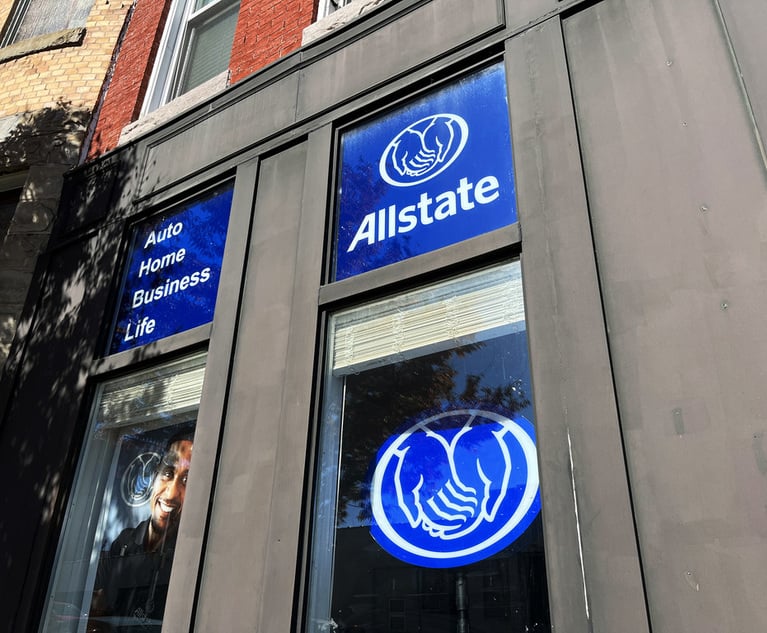Fifth Circuit Reinstates Claims in Free-Speech Case Over Deleted Facebook Comments
“Official censorship based on a state actor's subjective judgment that the content of protected speech is offensive or inappropriate is viewpoint discrimination,” said the Robinson v. Hunt County ruling.
April 16, 2019 at 06:12 PM
4 minute read
 Nadir Keklik/Shutterstock.com
Nadir Keklik/Shutterstock.com
A new ruling by the U.S. Court of Appeals for the Fifth Circuit revived a case that claimed a county sheriff violated free-speech rights by deleting comments and banning a user from a public Facebook page it created and maintained.
And now attorney JT Morris, who represents Deanna Robinson, the plaintiff in the case, said the ruling could have wide implications as public officials increasingly use social media to engage with their constituents. Morris said the ruling will help guide public officials on how to use social media without running afoul of the First Amendment's prohibition on government officials suppressing speech.
“We're certainly looking forward to going back to the district court, so Mrs. Robinson can further protect her First Amendment rights,” said Morris, an attorney at JT Morris Law in Austin.
The Fifth Circuit's April 15 ruling in Robinson v. Hunt County explained that the Hunt County Sheriff's Office and its sheriff, Randy Meeks, maintain a Facebook page that says it welcomes “positive” comments about the law enforcement agency.
A post in January 2017 said that just after a police officer was killed, the office received “anti-police calls” and people wrote comments degrading or insulting officers on the Facebook page. The post said the page would remove any user's post with foul language, hate speech or inappropriate comments and then ban the author from the page.
Robinson and other Facebook users commented critically about the policy that they said censored protected speech. Robinson wrote that degrading or insulting officers was legal, and courts have ruled such speech is protected. The sheriff's office had no right to delete inappropriate comments and ban people from commenting on the “tax payer funded” Facebook page, she wrote. She also made offensive remarks about the office and the deceased officer, the opinion noted.
Robinson alleged in her lawsuit that deleting her comment and banning her from the page was viewpoint discrimination, retaliation for protected speech, and a prior restraint on speech. She also argued she didn't get due process before her comment was deleted and she was banned.
In the trial court, a judge denied Robinson a preliminary injunction and later dismissed her complaint for failing to state a claim, which she appealed to the Fifth Circuit. The court affirmed the trial court's decision to dismiss claims against the individuals that Robinson sued, but it reinstated the case against Hunt County.
The court agreed with Robinson's contention that deleting her comment and banning her from the page constituted viewpoint discrimination.
“Official censorship based on a state actor's subjective judgment that the content of protected speech is offensive or inappropriate is viewpoint discrimination,” the opinion said, noting the court was assuming in its ruling that the sheriff's office's Facebook page was a public forum and subject to First Amendment protection.
Meeks, the sheriff, was acting as a final policy maker over the Facebook page, acting for the county, ruled the court. The policy was the force behind Robinson's constitutional rights being violated.
The court reinstated all of Robinson's constitutional claims against Hunt County, and her request for declaratory relief. It remanded the case to the trial court to reconsider Robinson's request for a preliminary injunction to force the defendant to reinstate her deleted comment and unban her from the sheriff's page.
Thomas P. Brandt, director of Fanning Harper Martinson Brandt & Kutchin in Dallas, who represents Hunt County, said he's pleased the court dismissed Robinson's claims against the sheriff and individual employees, but he's concerned that the court found the sheriff acted as a policymaker for Hunt County.
“I'm not aware of any cases out there that suggest that a sheriff can be considered the final policymaker for the county with respect to a Facebook page,” said Brandt. “It would mean any sheriff in any county who sets up a Facebook page would then be essentially determined to be a final policymaker of the county itself, and that would expand liability under Sec. 1983 beyond anything that we've seen previously.”
Read the Fifth Circuit's opinion here.
This content has been archived. It is available through our partners, LexisNexis® and Bloomberg Law.
To view this content, please continue to their sites.
Not a Lexis Subscriber?
Subscribe Now
Not a Bloomberg Law Subscriber?
Subscribe Now
NOT FOR REPRINT
© 2025 ALM Global, LLC, All Rights Reserved. Request academic re-use from www.copyright.com. All other uses, submit a request to [email protected]. For more information visit Asset & Logo Licensing.
You Might Like
View All
Supreme Court Appears Sympathetic to Law Requiring Porn Sites to Verify Users' Age

Read the Document: DOJ Releases Ex-Special Counsel's Report Explaining Trump Prosecutions
3 minute read
Houston Trial Lawyer Mary-Olga Lovett Leaves King & Spalding to Open Boutique
3 minute read
Allstate Is Using Cell Phone Data to Raise Prices, Attorney General Claims
5 minute readTrending Stories
- 1Can a Law Firm Institutionalize Its Culture? Boies Schiller’s New Chairman Will Try
- 2Full 8th Circuit Hears First Amendment Challenge to School District’s ‘Equity Training’
- 3Exploring Generative AI’s Impact on Intellectual Property
- 4Training Lawyers in AI and Using AI to Boost Training
- 5EB-5 Rebounds After a Rocky Year: Challenges of 2024 Lay Groundwork for a Booming 2025
Who Got The Work
J. Brugh Lower of Gibbons has entered an appearance for industrial equipment supplier Devco Corporation in a pending trademark infringement lawsuit. The suit, accusing the defendant of selling knock-off Graco products, was filed Dec. 18 in New Jersey District Court by Rivkin Radler on behalf of Graco Inc. and Graco Minnesota. The case, assigned to U.S. District Judge Zahid N. Quraishi, is 3:24-cv-11294, Graco Inc. et al v. Devco Corporation.
Who Got The Work
Rebecca Maller-Stein and Kent A. Yalowitz of Arnold & Porter Kaye Scholer have entered their appearances for Hanaco Venture Capital and its executives, Lior Prosor and David Frankel, in a pending securities lawsuit. The action, filed on Dec. 24 in New York Southern District Court by Zell, Aron & Co. on behalf of Goldeneye Advisors, accuses the defendants of negligently and fraudulently managing the plaintiff's $1 million investment. The case, assigned to U.S. District Judge Vernon S. Broderick, is 1:24-cv-09918, Goldeneye Advisors, LLC v. Hanaco Venture Capital, Ltd. et al.
Who Got The Work
Attorneys from A&O Shearman has stepped in as defense counsel for Toronto-Dominion Bank and other defendants in a pending securities class action. The suit, filed Dec. 11 in New York Southern District Court by Bleichmar Fonti & Auld, accuses the defendants of concealing the bank's 'pervasive' deficiencies in regards to its compliance with the Bank Secrecy Act and the quality of its anti-money laundering controls. The case, assigned to U.S. District Judge Arun Subramanian, is 1:24-cv-09445, Gonzalez v. The Toronto-Dominion Bank et al.
Who Got The Work
Crown Castle International, a Pennsylvania company providing shared communications infrastructure, has turned to Luke D. Wolf of Gordon Rees Scully Mansukhani to fend off a pending breach-of-contract lawsuit. The court action, filed Nov. 25 in Michigan Eastern District Court by Hooper Hathaway PC on behalf of The Town Residences LLC, accuses Crown Castle of failing to transfer approximately $30,000 in utility payments from T-Mobile in breach of a roof-top lease and assignment agreement. The case, assigned to U.S. District Judge Susan K. Declercq, is 2:24-cv-13131, The Town Residences LLC v. T-Mobile US, Inc. et al.
Who Got The Work
Wilfred P. Coronato and Daniel M. Schwartz of McCarter & English have stepped in as defense counsel to Electrolux Home Products Inc. in a pending product liability lawsuit. The court action, filed Nov. 26 in New York Eastern District Court by Poulos Lopiccolo PC and Nagel Rice LLP on behalf of David Stern, alleges that the defendant's refrigerators’ drawers and shelving repeatedly break and fall apart within months after purchase. The case, assigned to U.S. District Judge Joan M. Azrack, is 2:24-cv-08204, Stern v. Electrolux Home Products, Inc.
Featured Firms
Law Offices of Gary Martin Hays & Associates, P.C.
(470) 294-1674
Law Offices of Mark E. Salomone
(857) 444-6468
Smith & Hassler
(713) 739-1250






